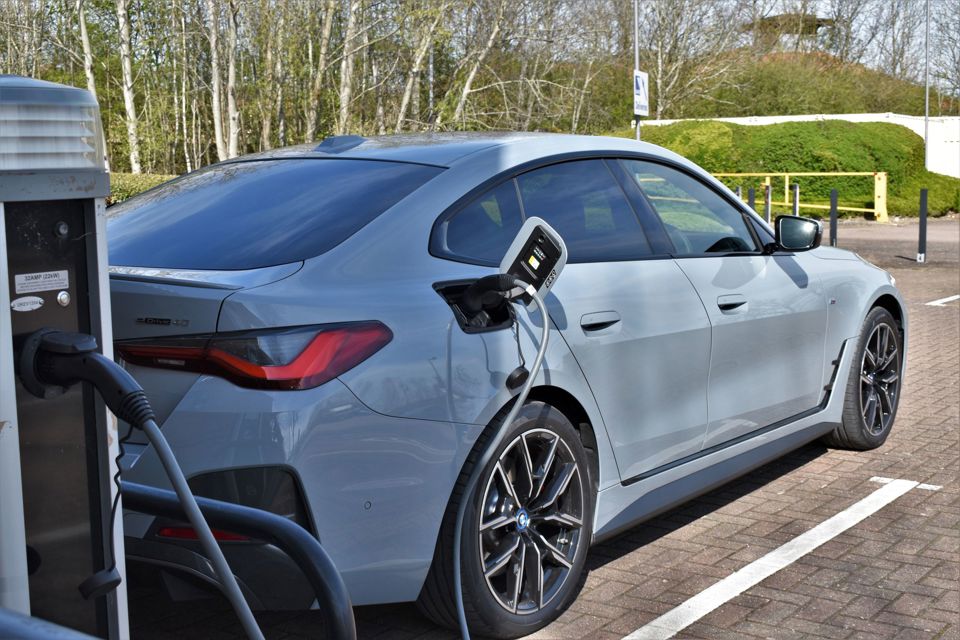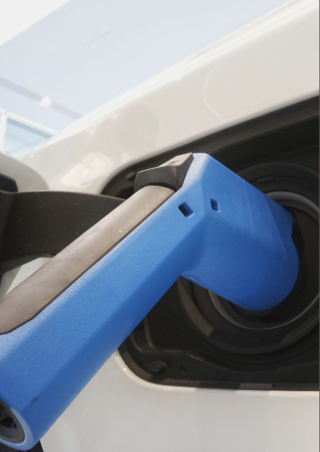The cost of flat rate charging on the public network fell by up to 8% compared to December, according to The AA EV Recharge Report, but more providers have now introduced peak and off-peak rates.
The cost of public slow charging, typically carried out on lamppost chargers, fell by 8% to mirror the cost of domestic charging in January, while fast and rapid flat rates fell by 3% compared to December. Petrol pump prices in the same period fell 1.7%.
Peak rates across all speeds exceed 70p per kWh, with fast and rapid peak rates the most expensive on the market, however all providers determine their peak times differently so EV drivers are advised to check the costs prior to plugging in.
While average petrol pump prices fell by 1.7% in January to 148.80 pence per litre (ppl), the cost per mile of running a typical petrol car came to 14.21 pence per mile.
Jack Cousens, head of roads policy & EV charging, said; “The slight fall in electricity prices has been reflected in the flat rate prices EV drivers pay. The speed in which the prices fell is encouraging and hopefully means the ‘rocket and feather’ approach to wholesale costs experienced in petrol prices won’t be adopted by charge point operators.
“However, we believe OFGEM needs to keep a watchful eye on peak rate costs to ensure they don’t escalate to the point where it puts drivers off using them. Whilst we understand the reasons why peak rates exist, the price needs to be reasonable in relation to the speed of charge.”
Tanya Sinclair, senior director of policy for Europe at ChargePoint, acknowledges that consumers are probably concerned about the findings. However, she said: "There are a few things for them to consider. Firstly, the vast majority of charging takes place at work or home where costs are considerably cheaper.
"DC Fast Charge is a small part of the equation in EV charging. It only plays an important role when people drive beyond the range of their vehicle and need to be able to charge their EV very quickly.
"Most of the time people charge their vehicles from home or work, which is much more cost effective than DC Fast charging.
"What’s more, workplaces that offer charging often choose to do so at a discount or for free for employees, in order to encourage EV uptake or electrify their fleets.
"Charging management software and smart charging capabilities enable this, by helping to keep infrastructure costs down, provide value for money and run smarter services.
"We are at a particularly important moment in the move to EVs, making it crucial for both industry and Government to work together to help increase adoption and bring prices down.
"We encourage the Government to continue developing forward-thinking policies to help the UK reach its 2030 target of ending the sale of petrol and diesel cars.”
Average peak and off peak EV charging costs Jan 2023:
|
Charge Type |
Speed |
Jan Ave (p/kWh) |
Cost to charge to 80%* |
Pence per mile (ppm)* |
|
Slow Off-Peak |
Up to 7kW |
37 |
£14.80 |
8.31 |
|
Slow Peak |
Up to 7kW |
72 |
£28.80 |
16.18 |
|
Fast Off-Peak |
8-22kW |
57 |
£22.80 |
12.81 |
|
Fast Peak |
8-22kW |
75 |
£30.00 |
16.85 |
|
Rapid Off-Peak |
23-100kW |
57 |
£22.80 |
12.81 |
|
Rapid Peak |
23-100kW |
75 |
£30.00 |
16.85 |
|
Ultra-rapid Off-Peak |
+101kW |
60 |
£24.00 |
13.48 |
|
Ultra-rapid Peak |
+101kW |
74 |
£29.60 |
16.63 |
*Calculations are based on a Vauxhall Corsa-e with a 50kWh battery and a 222-mile WLTP range.
> Interested in comparing electric vehicle data? Check out our EV tool.
> Interested in ensuring the efficient use of EVs. Check out our dedicated editorial sections: Insight & policy | EV news | Charging & infrastructure | Costs & incentives | Benefit-in-kind | EV case studies | EV road tests






















Login to comment
Comments
No comments have been made yet.